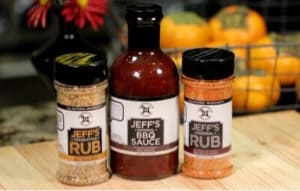There are a couple things I have questions on before I can venture any ideas as to what may be changed for a better finished product, however, the first thing that comes to mind is your finished temp of 190*...that may be a bit high for a lean-trimmed flat (center-cut). You need to poke around inside a little as temps are nearing 180* to feel how tender it is getting before you decide to take it further. Only go as hot as you feel is necessary to get it tender enough for slicing. Slice across the grain for a more tender chew. Rest the meat after reaching probe-tenderness before slicing to redistribute the juices throughout the meat. If properly executed this will all translate to a more tender, moist sliced brisket.
By overcooked, are you saying dried-out and leathery, or a mealy/grainy chew?
Was there too much bark that was tough? Dry rubs with sugar can form a heavy, caramelized bark fairly quickly...I shy away from added sugars on longer smokes because the sugars can actually scorch, given enough time, even at low & slow chamber temps of 225*...different smokers and conditions can create different reactions from sugar-based dry rubs.
How was your brisket prepped for the smoke, such as overnight marinated, or injected? Was it lean trimmed or fat-cap on, and if with fat-cap, was it cap up or down on the grate?
As for time, there are numerous variables that can and will change your cooking time, such as ambient humidity, smoke chamber humidity (using water in a pan or no water), as well as other ambient conditions. Individual smokers will cook differently than others. Smoke chamber ventilation settings can have a huge impact on cooking efficiency. If your vents are closed down too much you get too little flow through the smoke chamber...this can cause creosote from stale/stagnant smoke, and reduces the cooker's convective efficiency, increasing cooking time for a given chamber temperature. Another (often overlooked) varible is location, elevation/altitude (barometric pressure, in specific). Higher altitude (lower pressure) reduces the boiling-point of water which translates to longer cooking time, which can be offset by increasing smoke chamber temperature.
Come on back and let us know more about what didn't come out to your expectations, how it was prepped and finished, etc. There's a lot more to it than what I mentioned above, but if we start with any obvious possible issues right up front would be best.
Eric




